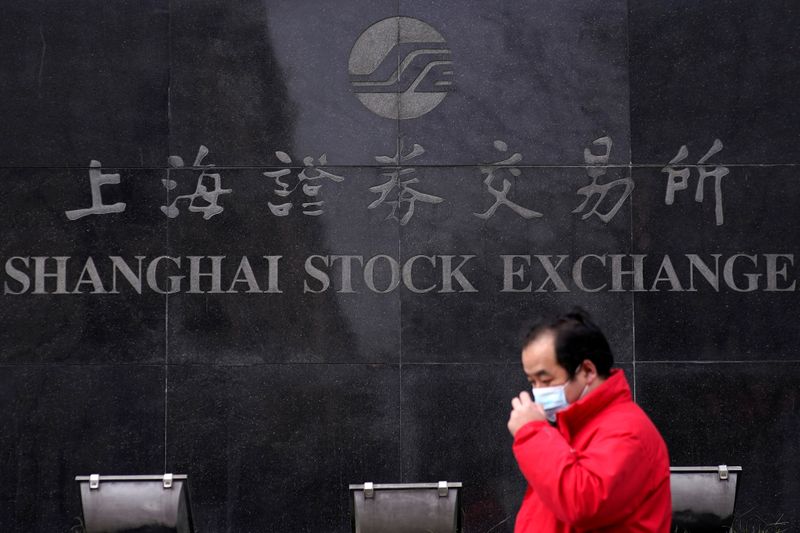Position defensively in China stocks amid stimulus watch, Trump jitters- UBS
UBS recommended positioning defensively in Chinese markets, citing near-term risk and volatility from uncertainty over more stimulus measures, as well as trade headwinds from a Donald Trump presidency.
UBS said Chinese equities were susceptible to increased volatility in the face of higher U.S. trade tariffs, given that president-elect Trump has vowed to impose an at least 60% tariff on all Chinese imports.
On the stimulus front, UBS said Beijing was likely holding off on more targeted fiscal measures until it had more clarity on what Trump’s stance will be towards the country.
“The deferral of fiscal stimulus indicates that top leaders are opting to preserve their policy options until Trump’s tariff strategy becomes clearer. To us, this also means China is prepared to respond to higher tariffs with greater policy support,” UBS analysts wrote in a note.
China’s National People’s Congress approved 10 trillion yuan ($1.4 trillion) in debt measures aimed at supporting provincial governments. But investors were underwhelmed by a lack of targeted fiscal measures, which dented Chinese equity markets.
The Shanghai Shenzhen CSI 300 , Shanghai Composite and Hang Seng indexes were nursing losses in recent sessions, with UBS flagging near-term volatility.
Chinese stocks had rallied through late-September and early-October after Beijing flagged plans for more stimulus. But they largely reversed this rally in the run-up to the U.S. elections, while doubts over the timing and scale of China’s planned stimulus remained in play.
UBS recommended defensive positioning in local stocks, with a bias towards defensive and high-yielding value sectors in the near-term.
“Domestically oriented, SOE-heavy segments should outperform in a volatile environment while also benefiting from greater policy stimulus. Growth sectors are more susceptible to stimulus disappointments and near-term US policy uncertainty,” UBS wrote in a note.
The brokerage maintained its Neutral stance on Chinese equities, and said it would consider a more positive view if stocks fell sharply. UBS also said it would see a buying opportunity in Chinese internet stocks in such a scenario, given their strong growth prospects and shareholder returns.
Source: Investing.com
